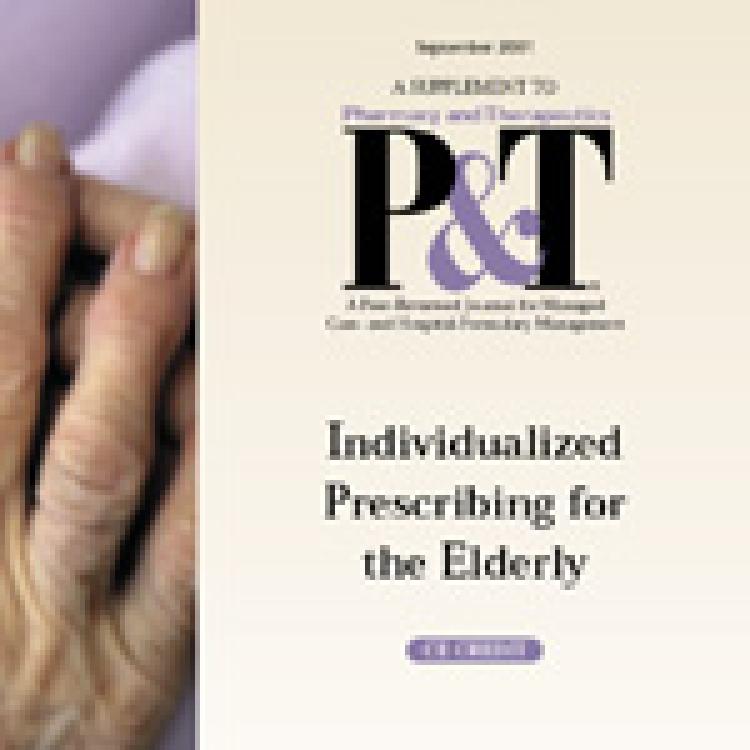Authors: Novielli, KD; Koenig, JB; White, E; Wertheimer, A; Nash, DB
Advances in health care and pharmaceuticals have made it possible to treat many diseases that manifest as people age. However, a "one-drug-fits-all" approach is not ideal, particularly for older patients who are exposed to unique health-related variables. When these variables interact in an older patient, individualized drug therapy is required.Selection of pharmaceutical therapy for elderly patients is determined by three primary factors unique to this group: comorbidities, the physiological effects of aging, and drug side effects. All of these factors impact care, and, according to the study authors, reflect the need for individualized prescribing for elderly patients. Alone, a population-based approach to treatment is limited in its effectiveness. Instead, the authors conclude that it is better to use a population-based approach as the foundation for drug therapy decision making, and augment it with appropriate individualized treatment.
